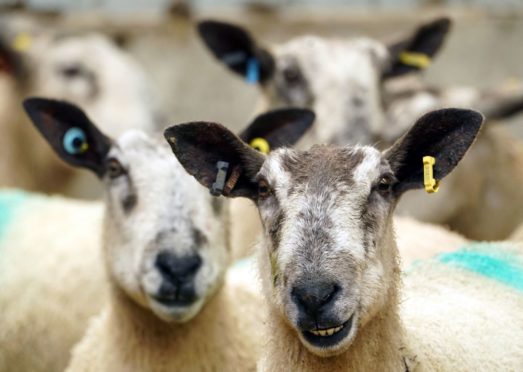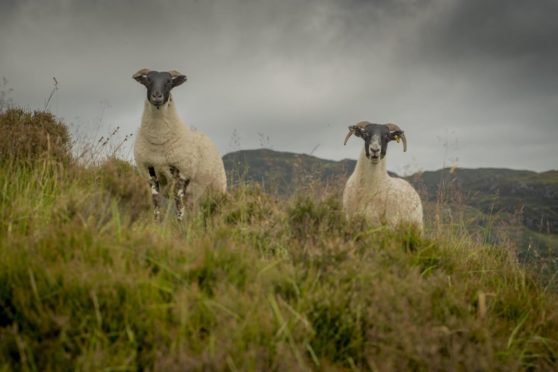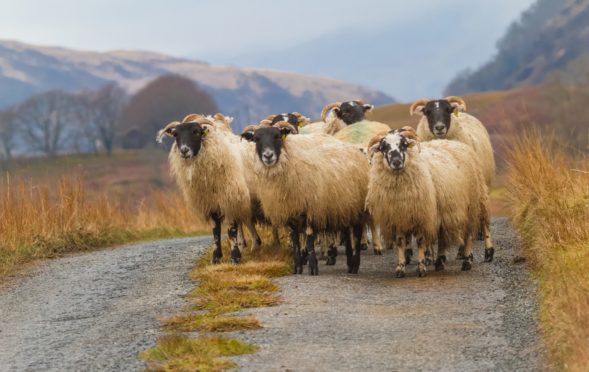The majority of the research conducted by my team involves working with a wide range of partners from Scotland and elsewhere – and this is certainly keeping my team busy.
EuroSheep is an EU funded project with two main goals.
The first is to assess how best to improve individual and flock performance through improved management of animal health. The second is to consider how an enhanced focus on the nutritional needs of the animals can help reduce annual feed costs.
A UK workshop for this project took place online in the middle of May. This involved asking a group of farmers, advisors and vets – drawn from across the UK – to consider a range of potential solutions of relevance to sheep nutrition and health.
The group were presented with a wide range of pre-selected solutions and asked to narrow these down to the top 12 that they collectively considered of most relevance to the UK sheep industry.
Examples of the solutions chosen by the workshop attendees included the use of existing guidance on feeding the ewe, raising awareness of Iceberg diseases in sheep and how best to use SCOPS (Sustainable Control of Parasites) information to reduce resistance to wormers.
The workshop also identified a lack of awareness on how best to develop flock health plans. Hence the Animal Health Planning System – funded by the Scottish Government and created by SRUC Veterinary Services – was also one of the solutions taken forward.
These UK solutions will be considered at an international workshop later in the year involving project partners – drawn from France, Greece, Hungary, Ireland, Italy, Spain, Turkey and the United Kingdom – who will also present the solutions identified at their own national workshops.
Precision technology
Another EU funded project called TechCare aims to identify how innovative Precision Livestock Farming technologies can be used to identify animal welfare issues in sheep and goat systems.
My colleague Claire Morgan-Davies is the overall coordinator of the project, which is no mean feat given that it involves 18 partners drawn from across Europe and the eastern Mediterranean.
The consortium has been holding national workshops online in each of the nine countries represented – France, Greece, Ireland, Israel, Italy, Norway, Romania, Spain and the United Kingdom – in recent months.
Each workshop has taken a similar approach to identifying welfare challenges.
Attendees were presented with 20 pre-selected welfare issues – of direct relevance to either meat sheep, dairy sheep or dairy goat systems – and then discussed and agreed the top five priorities.
The UK focus is on extensive and semi-extensive sheep systems and – because of differences in farmer availability due to timings of lambing across the UK – the priorities are being identified across two workshops.
The first has already occurred and primarily involved English hill farmers and a range of advisers. The second will occur at the end of May and will involve a mix of farmers from Scotland and Northern Ireland together with some vets.
The pre-selected welfare issues being considered by the UK workshops include: parasites in ewes and lambs; malnutrition, mastitis and lameness in ewes; and mismothering and predation of lambs.
Existing or new Precision Livestock Farming technologies will then be identified and tested for effectiveness against each of the top five priorities identified as a focus within each country.
Projects such as these help keep my team connected with researchers in the major European and eastern Mediterranean sheep producing countries.
But more importantly, these connections allow all involved to learn practical lessons from each other that can be adapted and developed to improve best practice in our respective countries.
- Professor Davy McCracken is head of SRUC’s hill and mountain research centre near Crianlarich in Perthshire.


